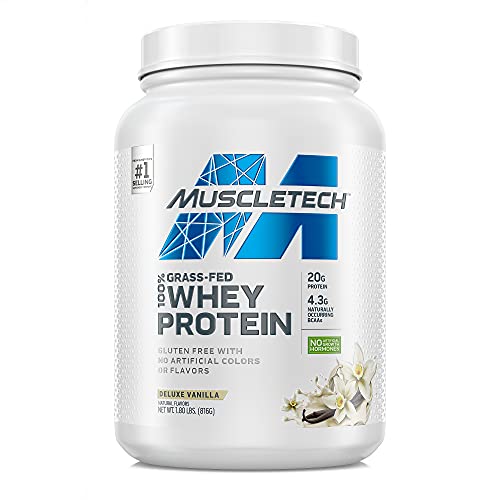Introduction:
In the realm of nutrition, terms like “farm fed protein” and “grass fed protein” often find their way onto food labels and restaurant menus, sparking curiosity and raising questions about their significance. Today, we unravel the mystery surrounding “farm-fed protein” and shed light on the common misconception that it’s just another name for “grass-fed.”

Farm-Fed Protein: More than Meets the Eye
The term “farm-fed protein” may seem like a fresh concept, but in reality, it’s closely intertwined with the well-established practice of “grass-fed” farming. Essentially, “farm-fed” is a broad term that encompasses a variety of sustainable and ethical farming practices, including grass-fed methods. The key distinction lies in the fact that farm-fed protein encompasses a range of diets provided to animals on different farms, while “grass-fed” specifically refers to animals that are raised on open pastures and primarily feed on grass.
The Grass-Fed Connection
Grass-fed farming is a practice deeply rooted in the principles of natural and sustainable agriculture. Animals raised on pastures are allowed to graze freely, engaging in behaviors that are essential for their overall health and well-being. This natural diet of grass and forage contributes to the development of leaner, nutrient-rich meat and dairy products. The animals’ exposure to sunlight and fresh air also results in healthier living conditions, reduced stress, and improved immune systems.
While “farm-fed protein” serves as an umbrella term, “grass-fed” is a specific subset that resonates with health-conscious consumers seeking products with distinct nutritional benefits. Choosing grass-fed options means opting for products derived from animals that have not been subjected to feedlots, unnatural diets, or the overuse of antibiotics and hormones.
Benefits of Grass-Fed/Farm-Fed Protein
The allure of Grass-Fed/Farm-Fed Protein extends far beyond its culinary appeal, delving into a realm where nourishment, sustainability, and ethical considerations converge in a harmonious symphony of benefits.
Enhanced Nutritional Profile:
At the heart of the Grass-Fed/Farm-Fed Protein paradigm lies an elevated nutritional profile that has captivated the attention of health enthusiasts and experts alike. This wholesome approach to farming yields protein that is not only rich in flavor but also laden with a treasure trove of essential nutrients. Omega-3 fatty acids, renowned for their heart-protective properties, emerge as protagonists in this nutritional saga. As they grace the grasses consumed by livestock, they are woven into the very fabric of the meat and dairy products, bestowing upon them the power to support cardiovascular health and reduce inflammation. Vitamin E, a potent antioxidant, lends its touch to this narrative, fortifying the body’s defenses against oxidative stress. The orchestra of antioxidants further enhances the immune system’s performance, orchestrating a symphony of vitality that resonates deeply within the bodies of those who partake in this wholesome bounty.
Environmental Sustainability:
The ecological harmony that unfurls within the Grass-Fed/Farm-Fed realm casts a halo of environmental sustainability, beckoning us toward a future where agriculture and nature coexist in perfect equilibrium. These practices are not merely food production methods; they are pledges to preserve the delicate balance of our ecosystems. Sustainable land management takes center stage, nurturing healthy soils that absorb carbon, mitigating emissions, and fostering the flourishing tapestry of biodiversity. This commitment transcends the plate, reverberating as a gesture of reverence toward the planet we call home.

Ethical Animal Husbandry:
The story of Grass-Fed/Farm-Fed Protein extends its tendrils beyond the realm of human consumption. It is a narrative that champions the cause of ethical animal husbandry, a beacon of compassion in the world of food production. This approach to farming embraces the inherent rights of animals to engage in behaviors that define their nature. In open pastures, livestock roam freely, embodying the very essence of their being. They graze upon nourishing grasses, nourishing their bodies with a diet that resonates with their biology. This harmony between animal and environment culminates in meat and dairy products that carry not just physical sustenance, but the echoes of ethical commitment.
Steps to incorporate Grass-Fed/Farm-Fed Protein
As you traverse the landscape of nourishment, the term “farm-fed” beckons you to embark on a journey that unveils a tapestry of farming practices, each weaving its distinct thread into the fabric of responsible agriculture. Nestled within this broader realm lies the cherished gem known as the “grass-fed” approach—a practice that resonates with an age-old wisdom, nurturing not only the land but also the well-being of both animals and humans. To embrace the essence of grass-fed and farm-fed protein and infuse its wholesome goodness into your diet, consider the following steps:
Look for Labels:
First and foremost, acquaint yourself with the label language. When perusing the aisles of your grocery store, seek out products adorned with the labels “grass-fed” or “pasture-raised.” These designations are your compass, guiding you toward conscientiously sourced protein that reflects a commitment to ethical and sustainable farming.
Visit Local Farmers’ Markets
For a more immersive experience, embark on a journey beyond the confines of supermarkets. Explore the vibrant tapestry of local farmers’ markets that dot the landscape. Engage with the passionate individuals who till the soil and tend to their flocks. Forge connections with these guardians of the land, learning about their dedication to nurturing the earth and reaping the harvest in harmony with nature’s rhythms.

Opt for Diversity:
Diversity is the key to unlocking all of the nutritional benefits. Enrich your culinary repertoire with an array of grass-fed and farm-fed sources that span the spectrum of delights—meat, poultry, eggs, and dairy. This symphony of flavors not only tantalizes your taste buds but also furnishes your body with a treasure trove of essential nutrients, each a testament to the vitality of conscientious and sustainable farming practices.
Protein Powder as a supplement:
Finally, let us not forget the unassuming hero of modern convenience—protein powders. These powdered wonders, derived from grass-fed and farm-fed sources, offer an accessible and versatile means of elevating your protein intake. Whether blended into smoothies, stirred into oatmeal, or whisked into beverages, protein powders seamlessly integrate into your routine, delivering a potent punch of nourishment.
In the forthcoming segment, we delve into a comprehensive comparison of top-tier powders, ultimately unveiling a resounding victor.
Grass Fed Protein powders compared:
Products in this Review:
Garden of Life Certified Grass Fed Whey
Garden of Life Certified Grass Fed Whey
Pro’s
Con’s
Summary:
Garden of Life Sport Certified Grass Fed Whey provides a reliable source of protein with added benefits like BCAAs, probiotics, and ethical sourcing. The product’s certifications and quality standards ensure a trustworthy option for fitness enthusiasts. However, potential allergens and limited flavor choices should be considered, while the slightly higher cost might impact budget-conscious consumers. Overall, it’s a commendable choice for those seeking a clean, grass-fed whey protein to support their active lifestyle and nutritional goals.
MuscleTech Grass-Fed 100% Whey Protein
MuscleTech Grass-Fed 100% Whey Protein
Pro’s
Con’s
Summary:
MuscleTech Grass-Fed 100% Whey Protein offers a quality protein source with naturally occurring BCAAs, promoting muscle recovery and supporting a healthy lifestyle. Its clean and pure formula, versatile usage, and great taste make it suitable for a wide range of individuals. However, the limited flavor options and use of natural flavors could be considered minor drawbacks. Overall, for those seeking a reliable and effective grass-fed whey protein option that aligns with clean eating principles, MuscleTech Grass-Fed 100% Whey Protein could be a solid choice.
Solgar Grass Fed Whey To Go Protein Powder:
Solgar Grass Fed Whey To Go Protein Powder
Pro’s
Con’s
Summary:
Solgar Grass Fed Whey To Go Protein Powder offers a quality protein source sourced from grass-fed New Zealand cows, catering to health-conscious individuals seeking clean and ethical options. Its low sugar content and suitability for lacto-vegetarians are notable benefits. However, the limited flavor variety and absence of added probiotics could be considered minor drawbacks. While the slightly higher cost might impact budget-conscious consumers, the product’s commitment to quality and ethical sourcing makes it a commendable choice for those prioritizing these aspects in their nutritional supplements.
RSP Nutrition TrueFit Grass-Fed Protein Shake:
RSP Nutrition TrueFit Grass-Fed Protein Shake with Fruits & Vegetbles
Pro’s
Con’s
Summary:
RSP Nutrition TrueFit Grass-Fed Protein Shake offers a holistic approach to nutrition, combining grass-fed whey protein, organic fruits, vegetables, probiotics, and healthy fats. Its focus on gut health, quality ingredients, and clean sourcing are commendable. However, the limited flavor options and potentially higher cost could be considered minor drawbacks. Overall, for individuals seeking a well-rounded and nutrient-dense protein supplement that supports various aspects of health and fitness, RSP Nutrition TrueFit Grass-Fed Protein Shake could be a valuable choice.
Natural Factors Grass Fed Whey Protein
Natural Factors Grass Fed Whey Protein
Pro’s
Con’s
Summary:
Natural Factors Whey Factors Grass Fed Whey Protein offers high-quality protein with clean ingredients and beneficial microfractions, making it suitable for muscle support and immune health. The low carbohydrate and fat content, along with instant mixing, add to its appeal. However, the limited flavor options and consideration of carbohydrate content may be potential drawbacks for some consumers. Overall, for those seeking a natural, high-quality whey protein option with a focus on clean ingredients and nutritional benefits, Whey Factors could be a favorable choice.
Conclusion:
Considering the meticulous review of each product’s features, nutritional content, and overall quality, we confidently recommend the **Garden of Life Sport Certified Grass Fed Whey** as the top choice. Its extensive certifications, including Truly Grass-Fed™, Informed-Choice.Org Trusted by Sport, and NSF Certified Sport®, assure both the purity and suitability for athletes. The added benefits of probiotics, high protein content, and BCAAs further enhance its appeal. While each option presents its merits, the Garden of Life Sport Certified Grass Fed Whey stands out for its comprehensive approach to clean and effective grass-fed protein supplementation. It’s a testament to Garden of Life’s commitment to delivering top-tier products that cater to the needs of health-conscious individuals and athletes alike.
Garden of Life Certified Grass Fed Whey
Disclaimer: Pure PowerHouse earns a commission if you click a link and make a purchase at no extra cost to you.






